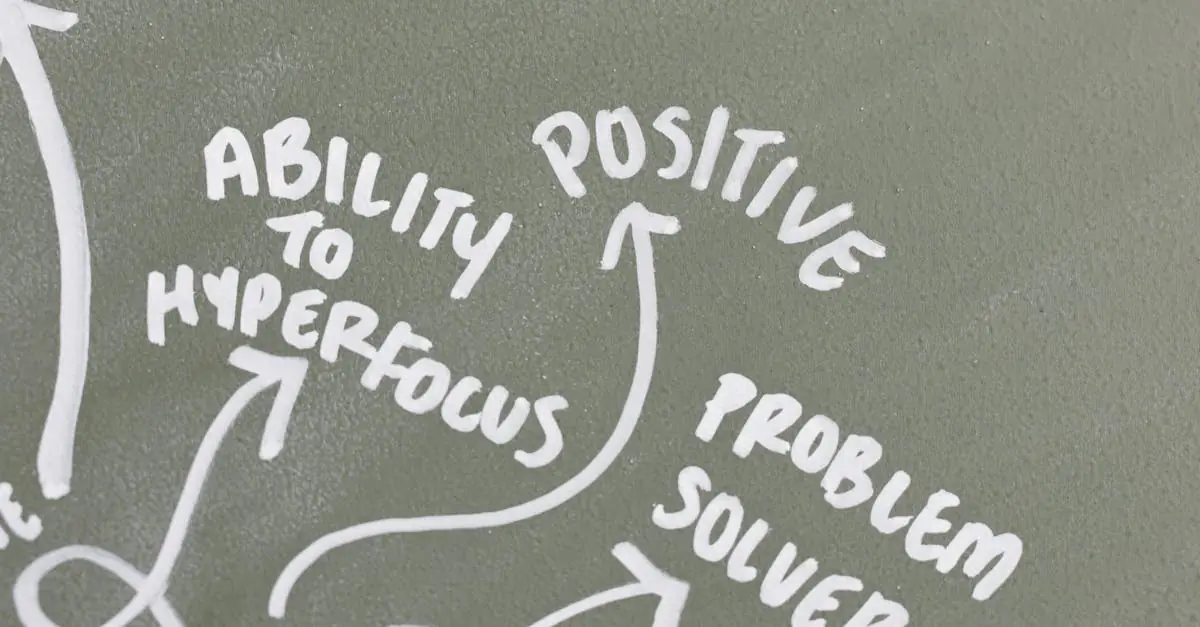In a world overflowing with information, critical thinking has become the superhero of personal growth. It’s the trusty sidekick that helps individuals sift through the noise and make sense of the chaos. Imagine having the power to dissect arguments like a pro and dodge the pitfalls of misinformation. Sounds like a superpower worth mastering, right?
Transforming your mindset isn’t just for philosophers and scientists; it’s for anyone who wants to level up their life. By honing critical thinking skills, one can unlock doors to better decision-making, improved relationships, and a deeper understanding of the world. So, buckle up and get ready to embark on a journey that’ll turn your brain into a well-oiled machine—complete with a sense of humor and a dash of wisdom. Who knew growth could be this fun?
Table of Contents
ToggleUnderstanding Critical Thinking Mastery
Critical thinking mastery involves developing the ability to analyze information objectively and make reasoned judgments. Cultivating this skill enhances personal growth and equips individuals to face diverse challenges effectively.
Definition of Critical Thinking
Critical thinking refers to the analytical process of evaluating information and arguments. It encompasses skills such as interpretation, analysis, evaluation, and inference. Practicing this type of thinking involves questioning assumptions and examining biases. Individuals use critical thinking to make informed decisions and solve complex problems. Mastery in this area leads to clarity of thought and improved communication skills. Engaging with various perspectives enriches understanding and fosters intellectual independence.
Importance of a Growth Mindset
Embracing a growth mindset plays a crucial role in critical thinking mastery. Individuals with this mindset believe their abilities can improve through dedication and hard work. This perspective encourages resilience in the face of challenges, fostering a continuous learning approach. Adopting a growth mindset enhances adaptability and creativity. It also promotes openness to feedback, which is vital for refining critical thinking skills. When people embrace this mindset, they become more receptive to new ideas and experiences, leading to significant personal development.
Key Components of Critical Thinking
Critical thinking encompasses various components that contribute to effective decision-making and problem resolution. Understanding these components enhances an individual’s ability to process information critically.
Analytical Skills
Analytical skills play a crucial role in assessing and interpreting information. Individuals apply these skills to break down complex ideas and identify patterns and trends. Critical thinkers examine evidence and question the validity of claims, ensuring they make informed evaluations. Being able to synthesize data enables individuals to draw reliable conclusions. Practicing analytical skills promotes clarity, leading to better communication and understanding among diverse perspectives.
Problem-Solving Abilities
Problem-solving abilities define how effectively individuals approach challenges. The process involves identifying the problem, generating potential solutions, and evaluating the outcomes. Critical thinkers utilize logical reasoning to enhance their problem-solving capabilities. They consider various viewpoints and potential implications before settling on a course of action. By embracing creativity and adaptability, individuals navigate obstacles more efficiently. These abilities empower them to tackle complex situations with confidence, fostering significant personal growth.
Steps to Transform Your Mindset
Transforming your mindset involves intentional changes in how you approach learning and self-awareness. This section explores practical steps that enhance critical thinking mastery.
Embracing a Learning Attitude
A learning attitude encourages curiosity. Cultivating this mindset means actively seeking new knowledge and experiences. Individuals who embrace this approach ask questions and engage in discussions that challenge their viewpoints. Regularly exposing oneself to diverse ideas fosters broader perspectives. Participating in workshops or reading extensively can significantly enhance one’s awareness. Personal growth thrives in environments where learning is prioritized, enabling adaptability to change and uncertainty.
Overcoming Limiting Beliefs
Limiting beliefs restrict personal potential. Identifying these beliefs marks the first crucial step toward transformation. Reflecting on past experiences reveals patterns that may inhibit growth. Replacing negative thoughts with empowering affirmations boosts self-confidence. Surrounding oneself with supportive individuals also reinforces a more positive mindset. Engaging in activities that push comfort zones helps dismantle these barriers. Recognizing that skills can develop promotes resilience in facing challenges.
Techniques for Mastery
Mastering critical thinking involves employing various techniques that enhance clarity and understanding. These methods promote effective learning and empower individuals to navigate complex ideas.
Mind Mapping for Clarity
Mind mapping serves as a visual tool for organizing thoughts and ideas. It encourages individuals to break down complex concepts into manageable parts. Starting with a central theme, one can branch out into related topics. This structure clarifies relationships between ideas, fostering deeper comprehension. By visually mapping out information, learners enhance memory retention. Creating these maps boosts creativity and encourages exploration of new connections. Engaging in mind mapping can lead to clearer problem-solving approaches.
The Socratic Method for Deep Understanding
The Socratic method emphasizes dialogue and questioning to explore ideas deeply. By engaging in discussions that challenge premises, individuals achieve greater insight. Practicing this method involves asking open-ended questions that stimulate critical thought. Encouragement to reflect on answers leads to a deeper understanding of topics. It helps uncover assumptions and surface biases, promoting critical evaluation. Through continuous questioning, learners develop analytical skills essential for mastery. Embracing this technique enhances one’s ability to reason effectively and communicate persuasively.
Real-Life Applications
Critical thinking mastery finds extensive application in everyday life, enabling individuals to undertake meaningful transformations. This adaptability contributes significantly to personal and professional growth.
Personal Growth Examples
Individuals apply critical thinking in various personal situations. For instance, assessing health choices involves analyzing nutritional information and research. Many enhance their relationships by critically evaluating communication patterns and addressing misunderstandings. Problem-solving during challenging times becomes easier as people weigh options and foresee consequences. Parenting benefits too, as caregivers interpret children’s behaviors and respond thoughtfully. By embracing critical thinking, people foster resilience and develop a clearer understanding of themselves and their goals.
Professional Development Scenarios
Professionally, critical thinking enhances decision-making effectiveness. Employees assess project data and evaluate risks while proposing solutions. Team dynamics also improve, as members articulate perspectives and challenge assumptions constructively. Leaders employing critical thinking lead more effectively, navigating complex situations and fostering innovation. Strategies for addressing workplace conflicts often involve critically analyzing differing viewpoints, promoting resolution. Individuals who cultivate these skills elevate their career prospects, leading to increased job satisfaction and professional accomplishments.
Embracing critical thinking mastery can truly transform one’s mindset and unlock a path to personal growth. By fostering analytical skills and a growth mindset individuals become more adept at navigating life’s challenges. This journey not only enhances decision-making but also enriches relationships and professional opportunities.
As they cultivate curiosity and engage with diverse perspectives they’ll find that the rewards of critical thinking extend far beyond mere problem-solving. It’s about developing a clearer understanding of the world and gaining the confidence to make informed choices. Ultimately, the commitment to mastering critical thinking is a powerful investment in a more insightful and fulfilling life.



